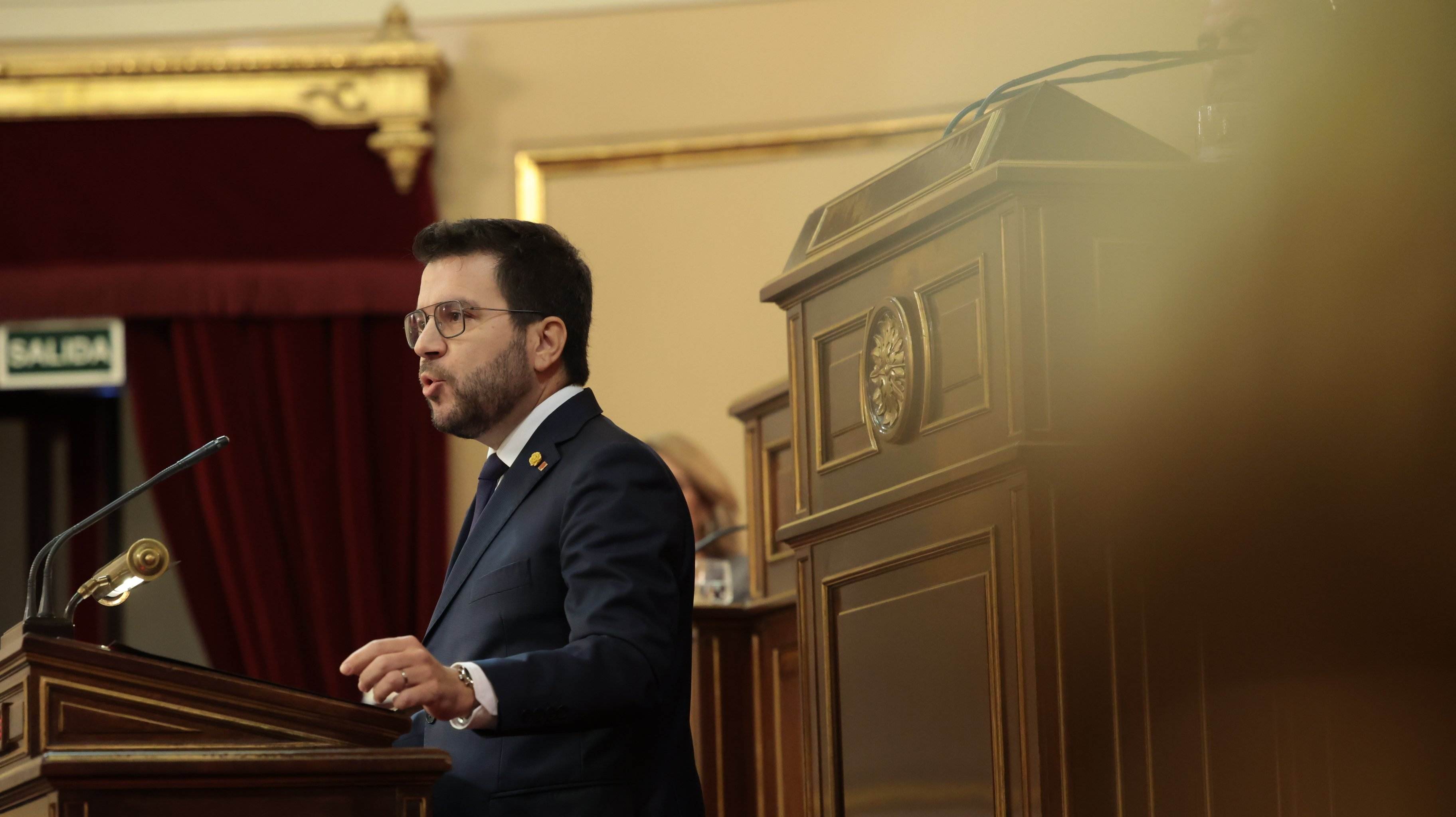He was the first to take the podium in a forum that is hostile to him. The president of Catalonia, Pere Aragonès, claimed this Thursday in Spain's Senate that the amnesty is a "starting point" for the resolution of the political conflict between Catalonia and the Spanish state. "The amnesty is not an end point, but rather the starting point that has a destination: for Catalan citizens to be able to vote in a referendum on their political future", said the president of the Generalitat, defending the referendum which, according to him, must be carried out "in an agreed and recognized manner" along the lines of Scotland's independence consultation of 2014. He was speaking in the General Committee on Autonomous Communities, in a debate called by the People's Party (PP).
In his speech to the upper house - which lasted about ten minutes - Aragonès put up a strong argument for a law to wipe the slate clean judicially, which his party, the Catalan Republican Left (ERC), and Together for Catalonias (Junts) are negotiating with the Socialists (PSOE) as Pedro Sánchez seeks to form a new Spanish government. According to the Catalan president, the amnesty is "an essential step" that must be used to "find solutions where others have put repression, blockades and a lack of dialogue". In this regard, Aragonès's speech highlighted what he sees as the merits of the path of dialogue with the Spanish state, which ERC started in the last Spanish legislature. Thus, he alluded to the 'release of political prisoners through pardons, the repeal of sedition and the misuse of funds and the recognition of the existence of a political conflict.
Pere Aragonès defends the amnesty in the Senate (full address, in Catalan)
In this way, Aragonès counteracted the arguments of the PP, whose members are "scandalized" by the amnesty negotiation, which the conservatives define as a "coup d'état". "They are scandalized, but they don't act like that with regard to the 6,000 pardons approved by Felipe González or the 6,000 that José María Aznar approved," Aragonès said. And he continued: "They say that the amnesty is a coup d'état, but they forget that there is an amnesty law from 1977 that prevents the blood crimes of the dictatorship from being investigated." Despite all the impediments, the Catalan president declared himself convinced that Catalonia will vote in a referendum "by will", "by perseverance", "by democracy", "always with an outstretched hand and always with free hands", he said at the end of his speech in the upper house, after which he directly left the Senate. Thus, he left the PP's 12 autonomous presidents on their own, given that the three of the PSOE (Castilla-La Mancha, Navarre and Asturias) had decided not to attend.
"The PP doesn't care what Catalonia thinks"
The Catalan president was on an express visit to Madrid, to give his address to the Autonomous Communities committee, aware that "the objective of the session is none other than to again use Catalonia for partisan battles". At this point, he railed against the PP's strategy of "inciting anti-Catalanism to wear down its opponent" and criticized that "whoever governs always exploits Catalonia to win a handful of votes". Because the leitmotif of the initial part of the speech was that "the PP doesn't care what Catalans think". If that were not the case, he said, they would work hard to make the Rodalies rail service work, solve the endemic fiscal deficit and take the side of the Catalan government when it comes to promoting the Catalan language.

